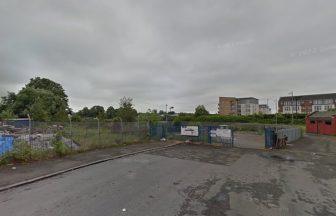Scotland is “extremely unlikely” to meet its fuel poverty targets for 2030, according to a new report.
The Scottish Fuel Poverty Advisory Panel says the Scottish Government’s first three-year progress update, Tackling Scottish Fuel Poverty 2021–24, shows that fuel poverty rates have risen sharply since targets were first set in 2019.
More than a third of households in Scotland (34%), approximately 861,0001, are now classed as living in fuel poverty.
Almost one in five are in extreme fuel poverty, meaning they must spend over 20% of their remaining income on energy.
The government’s targets are to reduce those figures to 15% and 5% respectively by 2030.
The Scottish Fuel Poverty Advisory Panel is calling for a new delivery plan that directly links boosting household incomes to reducing fuel poverty.
Matthew Cole, chair of Scottish Fuel Poverty Advisory Panel said: “We’re calling for the existing Fuel Poverty Strategy to be revised as a matter of urgency, or Scotland will not only miss its 2030 targets but is also unlikely to meet its 2035 targets. There is also a need for a fuel poverty delivery plan that links boosting household income directly to meeting fuel poverty targets, and this delivery plan should be robustly monitored.
“While meeting the 2040 target of just 5% in fuel poverty and 1% in extreme fuel poverty is still possible, it will be a massive challenge requiring a whole new strategic approach. There are far too many people still having to choose between heating their homes and feeding their families.”
The Scottish Fuel Poverty Advisory Panel argued that tackling fuel poverty has not been given the same “strategic prioritisation” at Holyrood as other major policy areas with statutory targets, such as child poverty and climate change.
It says that greater emphasis must be placed on the monitoring and evaluation of progress towards fuel poverty targets.
The report also highlighted frontline experiences gathered from advice agencies across Scotland.
“We have heard of people resorting to extremes so that they can access heat and power, with a resident in the Western Isles developing hypothermia after disconnecting the heating because they were unable to pay their bill,” Mr Cole said.
“We have even heard reports of someone ripping up the floorboards in their home so that they could burn them as a heat source. These findings are shocking on their own, but are even more so when we consider the longer-term impacts living in fuel poverty can have, including on physical and mental health.”
The Scottish Fuel Poverty Advisory Panel acknowledged that global events since 2019 – including the pandemic and the cost-of-living crisis exacerbated by the war in Ukraine – have driven energy costs far beyond what was foreseen when the original targets were set.
While energy prices are not under Holyrood’s direct control, the report said the scale of fuel poverty in Scotland meant the issue “should be a greater priority than ever.”
Progress was noted, including energy efficiency upgrades that mean 56% of Scottish homes were rated EPC band C or better in 2023 – up from 53% the year before – as well as targeted support to boost incomes in low-income households.
But the body warned that without urgent revision, Scotland will remain off track.
The Chair said: “It is essential that the revised strategy includes a clear, credible plan to cut fuel poverty and meet statutory targets. That means closer monitoring, better evaluation, and flexible policies that respond quickly to stalled progress or heightened need. We look forward to seeing the Scottish Government’s response in the coming weeks.”
Cabinet secretary for housing Mairi McAllan said: “We welcome this report and will consider its recommendations as we work together towards achieving our fuel poverty targets – which remain the most ambitious in the UK.
“Our commitment to tackling fuel poverty is unwavering, and we are doing all we can within our powers to support households.
“We are investing £300m this year into improving the heating and energy efficiency of our homes and buildings. And this coming winter we will provide an estimated £28.3m through our Winter Heating Payment, £11.4m through our Child Winter Heating Payment, and £157m through our Pension Age Winter Heating Payment, after payment recovery from pensioners with a taxable income above £35,000.
“However, it is clear that high energy prices must be addressed, and the fundamental fiscal and policy levers to make a real difference lie with the UK Government. If fuel prices had remained at 2019 levels, the efforts we are making in Scotland would have seen a decrease of around 389,000 households in fuel poverty.
“This is why we continue to press the UK Government to urgently deliver an automatic and targeted discount on energy bills to address unaffordable bills at source.”
Follow STV News on WhatsApp
Scan the QR code on your mobile device for all the latest news from around the country


 iStock
iStock
























